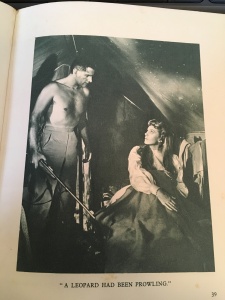Crafting descriptions that involve the senses is an important job for a writer. For a reader it helps them to fully immerse in a book, to feel like they have entered a new world – from the creak as a secret portal opens, to the grunting cry of a downed orc or the hiss of a leak in a spacesuit. Sounds both familiar and unfamiliar, they add to the imaginary or recreated historical world of your novel.
Historical fiction – even if there is just a nod to history – is a great opportunity to add in interesting snippets from the past. Strip away the sounds of cars, trains, phones and media and go back in time. What would you hear? What is your setting? A village with the blacksmith hitting the anvil and the hiss of tempered steel? The barking of dogs or howling wolves? The tranquillity of a forest with the click of beetles and the warning cries of birds? What sort of birds are they? A farm with cows munching grass, or the swish of wind through a ripening field of wheat?

Or perhaps a Victorian era London for some steampunk action? The cries of the muffin man selling hot muffins down the street, or oysters for sale near the docks. A ship at sea – storms, seagulls, the creaking as boards move or ropes thrum in the wind, or the flapping of sails as the wind picks up. The pumping of the bilge, the slow hum of a sea shanty as a seaman scours down the deck with holystone (a type of soft sandstone if you are curious). The ominous clanking of chain as Dr. Frankenstein raises the body aloft and waits for the lightning. The rattle of a carriage when the games is afoot.
A fantasy setting has some great opportunities in creating new sounds. What does a giant vampiric slug sound like moving across the ground? Does it have a sound – a keening wail or a whistle? RE Howard used sounds to great effect in his work, with the clash of swords, the screams of eldritch beasts and frightened damsels or sorcerous chants that tear a hole in the fabric of the universe. How can you describe the sound of dragon scales slithering over a pile of gold coins? The cries of circling vultures over a battlefield? A birdcall signal in a quiet forest just before the Picts attack? Does your heroine react or are they innocent babes in the wood?
Science fiction has the potential to use very small sounds in quite scary ways. The plink sound of a drop of acidic goo drops to the floor behind your intrepid crew. The dull boom or clank as something lands outside the ship and walks across the hull. The reassuring click or hum of a gun on full charge, and the snap of a helmet or belt into place.
Another source of sounds are your characters. Their voices, do they snore, or snort laugh? Does a character have a habit that drives someone mad with the sound? A wheeze for an unfit runner, or the slow dragging of a foot for an Igor, or the decisive clicks of an experienced person assembling a rifle. How do they react to these noises? A great way to show their character – do they strangle the whistling snorer, or go out of their way to help the less fortunate? Do the noises of the night sooth them, or do they lie awake expecting to be eaten? Henry Rider Haggard with his books on Africa has some wonderful descriptions of sounds at night (lions roaring, hyenas yapping) and the effects these sounds had on the experienced person and the new visitor. He also does a great job describing the different fear reactions inspired before a battle by the drumming of assegais on war shields.
For a reader, use of these sounds can help them imagine a foreign world, or send chills with the scary use of the familiar. What sorts of sounds have you used or read to immerse a reader?
Enjoy this blog? Have a think about signing up via my website or catch them as they fly around the ether on twitter or facebook. They will stay where they are pinned on pinterest.
For those that have not read Druid’s Portal yet, here is a link to the first chapter DruidsPortal


Good ideas! I love sensory writing. When it is done well it is effortless to read yet drops the reader into a vivid world
Thanks Brian. I always like the quote of Cornelia Funke “Which of us has not felt that the character on the printed page is more real than the person standing beside us?” Sensory writing can do that.